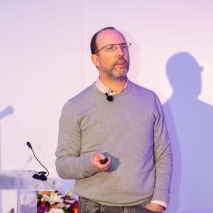
News

War of words not lost, Cape conference tells Jewish activists
TALI FEINBERG
But the Cape South African Jewish Board of Deputies reminded its audience at its annual conference last Sunday that our words really do matter, now more than ever.
“Words are the most powerful force for humanity. We know that what ends in oppression, starts with words,” said acting Director Liza-Jane Saban. “We know that when Jews are attacked with words, it will soon lead to attacks on other minorities, and the very fabric of our society.”
Cape Board Chairperson Rael Kaimowitz said that this was weaved into much of the Board’s work, especially over the past year. “Diversity is our strength, and our starting point is always to engage. It makes us more nuanced to be exposed to ideas beyond our comfort zones,” he stated, encouraging community members to hold respectful conversations with the Board and each other instead of choosing conflict.
He said the Cape Board had appointed an independent constitutional commission to examine and review its electoral processes, ensuring that every community member would have a voice.
The commission consists of its Chair, human rights lawyer Judith Cohen, as well as Moonyeen Castle, Professor Hugh Corder, Judge Dennis Davis, and Philip Krawitz. Cape community members have already been sent an online questionnaire to give feedback.
Guest speakers at the conference, Professor Anton Harber and Mike Abel, also addressed the impact of words in the modern world. “Words and images are competing, the radicals shout out the moderates, and the centre struggles to hold in South Africa, the United States, Europe, and Israel,” began Harber, the Caxton Professor of Journalism at the University of the Witwatersrand.
“PR firms outnumber journalists, and journalists themselves are diminishing, or being demeaned by the likes of Donald Trump, Vladimir Putin – even Benjamin Netanyahu,” he said. “We are now living in a ‘post-truth age’, which social media has accelerated. It has also taken away the ‘gatekeepers’ of new… it can empower and equalise, but it can also be abused.”
Another change to the world of words and media is that “populist nationalist politicians have no shame in lying”. While some may have seen Donald Trump lying about the numbers at his inauguration as humorous, in Harber’s mind it was “a key moment, as he has lied multiple times a day ever since”.
Harber gave the audience a taste of the “fake news industry”, where students in far-off countries can easily create false websites, news stories, and viral content with a few clicks of a button, and earn a decent income in dollars. They are unconcerned as to who the article is spreading fake news about, only if the untrue content will earn them more cash.
So what to do about this “fake news” minefield? First, be cognisant when reading all news, especially if it comes from a strange source. “Be sceptical of all news sources, and learn the tell-tale signs, including unusual website addresses,” Harber said. Second, support and share media houses and news stories that you know you can trust.
Third, “take the initiative back from the noisy fringes by ensuring you know and check the facts and veracity of the story”. This applies to both journalists and consumers, he said.
The professor emphasised that “fake news often builds on a kernel of truth, and gives it something to work with. For example, if Israel is trying to convince the world it is not an ‘apartheid state’, passing a Nation State law that makes some of its citizens ‘second class’, is not a step towards that message.” For Harber, Israel does not have a public relations problem, but a narrative issue.
Finally, “the greatest danger” in the battle over words is that “we choose to live in a bubble, and only listen to those who we agree with and who reinforce our views,” says Professor Harber. “The Jewish community should not shut itself from friends or allies,” who have constructive criticism, he concluded.
Mike Abel, Chief Executive of advertising agency M&C Saatchi Abel emphasised that the community had an important, powerful story to tell. “We believe in the brutal simplicity of thought, and the tyranny of simplification. Anything extraneous simply interrupts the story,” he said.
For example, he played an advert for a German supermarket that removed all non-German products from its shelves to show that they “cannot live without diversity” in the face of rising xenophobia in that country. He suggested that a similarly effective campaign could be run by Jewish organisations in combating anti-Semitism, removing anything from shelves or daily life that is made by Israel or Jews.
Abel advised the community to “make the strange familiar, and the familiar strange,” and to “talk to the heart” when trying to get its message across. He showed the incredulous audience YouTube adverts for luxurious tourist accommodation in Ramallah, which flew in the face of the Boycott, Divestment, Sanctions narrative; and how environmental activists caught the attention of the world media and the United Nations by creating a country on an island of trash.
However, he expressed his concern that “for such a clever country, Israel is useless at PR”, pointing out that this has a real impact on diaspora communities. However, he said, no one in the community should apologise for being Jewish, South African, or Zionist, and we should put out this proud and positive message through words, stories, and ideas.
Mike Abel will be working closely with the Cape Board on its exciting new “No Place for Hate” campaign.




